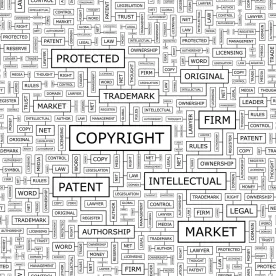On March 4, 2019, the United States Supreme Court held unanimously that “a copyright claimant may commence an infringement suit … when the Copyright Office registers a copyright.” Fourth Estate Public Benefit Corp. v. Wallstreet.com, LLC. (Slip. Op. at p. 1 (syllabus)). The Court also held unanimously that, upon registration of the copyright, “a copyright owner can recover for infringement that occurred both before and after registration.” Id. This decision resolves a long-standing circuit split between the application approach, which allowed a copyright owner to sue for infringement upon submission of a copyright application, and the registration approach, which allows an infringement suit to proceed only after the Copyright Office granted the registration.
The first sentence of section 411(a) of the Copyright Act provides that “no civil action for infringement of the copyright in any United States work shall be instituted until … registration of the copyright claim has been made in accordance with this title.” 17 U.S.C. § 411(a). The second sentence of section 411(a), however, provides an exception: When “’registration has been refused,’ the claimant ‘[may] institute a civil action, if notice thereof … is served on the Register.’” (Slip. Op. at 5 (quoting 17 U.S. C. § 411(a)). The Court concluded that the words “until … registration … has been made” in the first sentence of section 411(a) mean after the Copyright Office registers the work, rather than after the claimant files the application. (Slip op. at 4). In reaching this conclusion, the Court stated that the exception language of the second sentence of section 411(a) would be superfluous if registration alone sufficed to “ma[k]e” registration. Id.
The Court also noted the Act provides that “[i]n limited circumstances, copyright owners may file an infringement suit before undertaking registration. If a copyright owner is preparing to distribute a work of a type vulnerable to predistribution infringement – notably, a movie or musical composition – the owner may apply for preregistration.” (Slip. Op. at p. 3 (citing 17 U.S.C. §408(f)(2)). Once an application for preregistration has been made, the copyright claimant may sue for infringement. Id.Such a suit, however, may be dismissed unless the claimant applies for registration promptly after the preregistered work is published. (Id. at 4). The Court held that this language also would be superfluous if “registration … has been made” meant after the claimant files its application. Id. at pp. 6-7.
Although not part of its ultimate holding, the Court did note in footnote 6 that the Copyright Office does offer, for an additional $800, an optional “Special Handling” procedure for urgently needed registrations which the Copyright Office undertakes to issue within five business days. Authors’ note: This would seemingly offer a practical means of securing an early registration for filing suit where the legal fees associated with preparing and filing a complaint will almost always exceed $800.
Finally, the Court held that its interpretation of the statute will not deprive copyright owners of their rights during the waiting period between application and registration. The Court stated that “the Copyright Act safeguards copyright owners, irrespective of registration, by vesting them with exclusive rights upon creation of their works and prohibiting infringement from that point forward.” (Slip Op. at p. 10). Accordingly, “[i]f infringement occurs before a copyright owner applies for registration, that owner may eventually recover damages for the past infringement, as well as the infringer’s profits.” (Id. (citing 17 U.S.C. §504)).
Given the relatively short period of time (two months) from oral argument to issued opinion, this unanimous decision may signal the Court’s increasingly strict views on statutory interpretation in which the plain language of the law should be given its ordinary meaning.




 />i
/>i


